The stature of the Resolution is reflected in the first time establishing the strategic position of the private economy from being “an important driving force” to becoming “the most important driving force of the national economy”. This breakthrough change in thinking is not only a continuation of the ideology from Resolution 10 in 2017, but also demonstrates boldness and confidence in assigning responsibilities to the private economic sector, considering this sector on par with the state economy (often emphasized as “mainstream”) and the collective economy. With an open perspective, Resolution 68 eliminates prejudices and barriers about the private economy, especially the view that the private economy is opposed to the state economy or socialism. The State will play a role in creating and supporting, instead of intervening too deeply in administration. The fact that the General Secretary signed the Resolution on behalf of the Politburo shows commitment at the highest level. With the requirements of national development, supporting the private economic sector to further promote its role, creating new momentum and impetus for economic development is not only necessary, but also an "urgent and urgent" task.
According to statistics, by early 2025, the country had over 940,000 private enterprises operating along with more than 5 million individual business households. This sector contributed about 50% of GDP, more than 30% of total state budget revenue and attracted about 82% of the country's workforce. This shows that with its great potential, the private economy plays a key role in promoting growth, improving labor productivity, national competitiveness, creating livelihoods for the majority of people, contributing significantly to hunger eradication and poverty reduction and improving social life. Therefore, with a strategic vision, the Central Government's issuance of this Resolution also demonstrates recognition and trust in the business community, while setting a very high goal for the private economy in its role as a locomotive leading growth.
Specifically, by 2030: The private economy will become the most important driving force of the national economy, a pioneer in science and technology development, innovation and digital transformation. The private sector's growth rate will reach an average of 10-12% per year, higher than the country's overall GDP growth rate. Contributing to GDP about 55-58%, to the state budget about 35-40%, and creating jobs for about 84-85% of the workforce. Labor productivity in the private sector will increase by an average of 8.5-9.5% per year. The size of enterprises will increase sharply: The country has 2 million private enterprises in operation (equivalent to 20 enterprises/1,000 people). Forming at least 20 large private enterprises and corporations capable of participating in the global value chain, regional and international brands. The private sector's technological capacity, innovation and digital transformation are among the top 3 ASEAN countries and the top 5 Asian countries. By 2045, the private sector is oriented to develop rapidly, strongly, sustainably, and with high competitiveness regionally and internationally. Vietnam has at least 3 million private enterprises, contributing over 60% of the national GDP.
 |
Resolution 68 affirms that the private economy is “the most important driving force of the national economy”. Illustration photo: thoibaotaichinhvietnam.vn |
The Resolution also sets out fundamental solutions, especially on institutional reform, improving the business environment, reforming economic relations, helping businesses grow. Accordingly, by 2025, at least 30% of the time for handling administrative procedures, at least 30% of the cost of legal compliance, and at least 30% of business conditions will be cut. The public administration system will shift strongly from pre-inspection to post-inspection, along with increased inspection and supervision. An extremely important point that businesses have long been worried about is the legal risks, especially the risk of criminalizing civil and economic relations, which has been specifically regulated by Resolution 68 this time according to the principle of clearly distinguishing criminal, administrative and civil responsibilities. Accordingly, priority will be given to applying civil, economic and administrative measures first, allowing businesses and entrepreneurs to proactively remedy violations and damages. In cases where the practical application of the law may lead to criminal proceedings or not, criminal proceedings must not be applied. In cases where criminal proceedings are required, measures to remedy economic consequences must be prioritized first and are an important basis for considering further measures. This is a big step forward, creating conditions for businesses to self-correct their violations, have the opportunity to start over and continue to contribute to society.
In handling violations, the Resolution also requires a clear distinction between the responsibilities of legal entities and individuals, helping to avoid unnecessary widespread losses. Accordingly, it is necessary to ensure that the sealing, temporary seizure, and freezing of assets related to the case or case must comply with the correct authority, order, procedures, and scope, and not infringe upon the legitimate rights and interests of individuals and organizations; and ensure that the value of the sealing, seizure, temporary seizure, and freezing corresponds to the expected consequences of damage in the case. Clearly distinguish between legally formed assets and assets obtained from illegal acts and other assets related to the case; between assets, rights, and obligations of enterprises and individuals in the enterprise. Allow the reasonable use of necessary measures to ensure the value of assets related to the case, minimize the impact of the investigation on production and business activities, after obtaining consensus from the prosecution agencies and not affecting the investigation activities.
The main road has been opened. The problem now is to quickly put those strategic policies into practice. To do this requires the strong participation of all subjects, synchronously on all aspects, from perfecting institutions, favorable and transparent policies, to changing the way of serving, providing capital and technology for businesses.... But first of all, the business community needs to take advantage of opportunities, seize the opportunity, dare to think big, dare to do big to reach the region and the world, enrich themselves and contribute to building the country.
VAN DUYEN
* Please visit the Politics section to see related news and articles.
Source: https://baodaknong.vn/nghi-quyet-68-loi-hieu-trieu-doanh-nhan-dan-than-sang-tao-vi-mot-viet-nam-hung-cuong-253578.html


![[Photo] Festival of accompanying young workers in 2025](https://vphoto.vietnam.vn/thumb/1200x675/vietnam/resource/IMAGE/2025/5/25/7bae0f5204ca48ae833ab14d7290dbc3)


![[Photo] The coffin of former President Tran Duc Luong arrives in Quang Ngai](https://vphoto.vietnam.vn/thumb/1200x675/vietnam/resource/IMAGE/2025/5/25/1f1aca0d92ab47deae07934e749b35e6)

![[Photo] President Luong Cuong receives Lao Vice President Pany Yathotou](https://vphoto.vietnam.vn/thumb/1200x675/vietnam/resource/IMAGE/2025/5/25/958c0c66375f48269e277c8e1e7f1545)






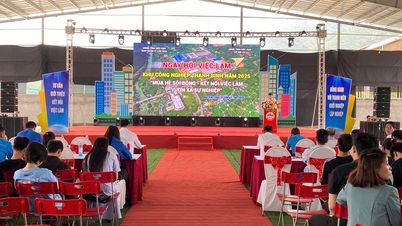









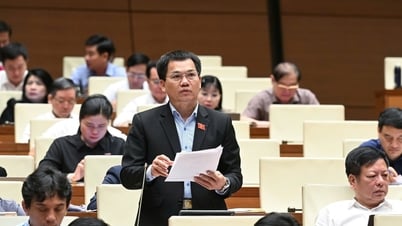

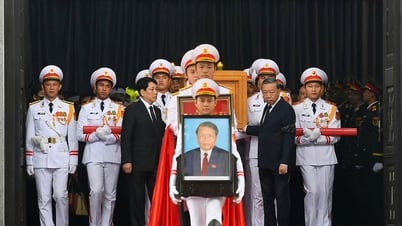
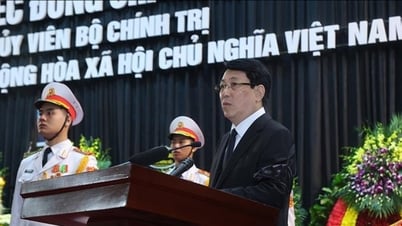












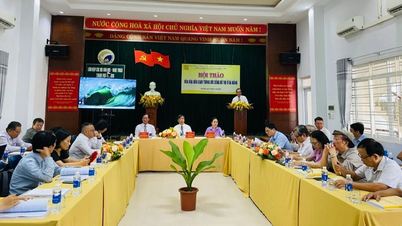






















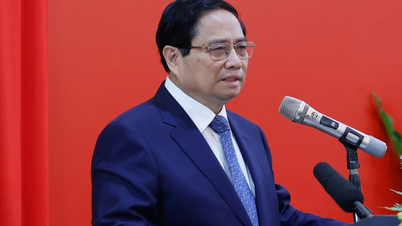

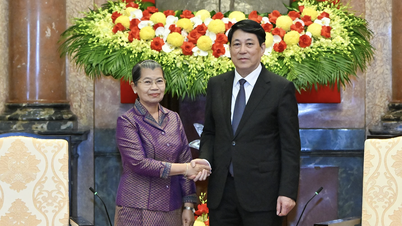

























Comment (0)